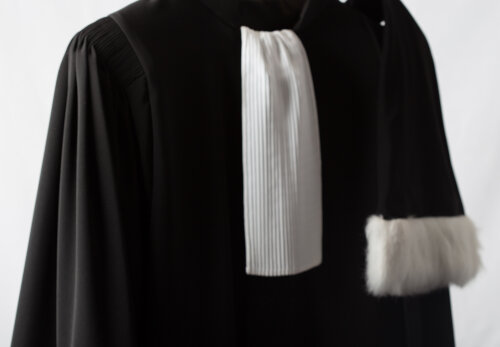Best Military Law Lawyers in France
Share your needs with us, get contacted by law firms.
Free. Takes 2 min.
Or refine your search by selecting a city:
List of the best lawyers in France
About Military Law in France
Military law in France governs the conduct and obligations of members of the French armed forces, including the army, navy, air force, and other military entities. It encompasses a wide range of regulations, codes, and statutes that dictate military discipline, service obligations, operational conduct, and legal protections for service members. The legal framework is designed to maintain order and discipline within the military while also safeguarding the rights and duties of military personnel.
Why You May Need a Lawyer
Individuals may seek legal advice in the area of military law for several reasons. Common situations include disputes related to enlistment contracts, issues of military discipline or misconduct, challenges related to military service obligations, and concerns about veterans' rights and benefits. Additionally, legal help might be necessary in cases involving military justice proceedings, such as courts-martial or administrative actions, where understanding the complexities of military law can be crucial.
Local Laws Overview
In France, military law is primarily governed by the Code of Defense, which outlines the laws and regulations applicable to armed forces personnel. Key aspects include:
- Military Discipline: Regulations concerning conduct, discipline, and procedures for handling violations within the military.
- Service Obligations: Laws related to enlistment, contracts, and required service periods, as well as conditions for conscription if applicable.
- Military Justice System: Structure and operation of military courts, including procedures for courts-martial and appeals processes.
- Rights of Service Members: Provisions protecting the rights and welfare of military personnel, including protections against unlawful actions and access to support services.
Frequently Asked Questions
What is the role of a military lawyer in France?
A military lawyer advises service members on legal issues, represents them in military courts, and provides guidance on military regulations, contracts, and rights.
How do military courts differ from civilian courts in France?
Military courts handle cases solely involving military personnel and are governed by different procedures and regulations specific to military law, focusing on offenses related to service duties.
What are the consequences of military misconduct?
Consequences can include administrative actions, disciplinary measures, or legal proceedings through a military court, potentially resulting in penalties such as fines, reprimands, or imprisonment.
Can civilian lawyers represent military personnel?
Yes, civilian lawyers with expertise in military law can represent service members, but they must be familiar with the specific procedures and regulations of military legal systems.
What protections exist for whistleblowers in the military?
Whistleblower protection laws safeguard military personnel who report misconduct or illegal activities, ensuring they are not subject to retaliation or adverse consequences.
How are enlistment disputes resolved?
Disputes related to enlistment contracts can be resolved through mediation, administrative review, or legal proceedings depending on the nature and complexity of the issue.
What are the rights of veterans under French military law?
Veterans have rights regarding benefits, healthcare, and support services, which are protected under laws aimed at ensuring their welfare and recognition of their service.
Are there specific laws for military families in France?
While military law primarily focuses on personnel, there are provisions that address the welfare and support of military families, including access to support services and benefits.
What is the process for appealing a military court decision?
Appeals in military courts follow a structured process, including submitting an appeal to a higher military court or authority for review of the original decision.
How does the conscription process work in France?
Currently, France does not have active conscription; however, regulations regarding service obligations and potential activation are outlined in military law for emergency situations.
Additional Resources
For more information or assistance, individuals can consult the following resources:
- French Ministry of the Armed Forces: For official policies and updates on military law.
- The Official Journal of the French Republic: Contains legal documents and legislative updates.
- Veteran Support Organizations: Offer assistance and advice to veterans and their families.
Next Steps
If you need legal assistance in military law, consider the following steps:
- Consult with a specialized military lawyer who understands the nuances of military regulations and legal procedures.
- Gather all relevant documents, such as service records, contracts, and correspondence, to help your lawyer assess your situation effectively.
- Reach out to available resources, including legal aid organizations and veteran support groups, to explore support options and additional guidance.
Taking proactive steps can ensure you receive the proper legal advice and representation needed to address your military law concerns effectively.
Lawzana helps you find the best lawyers and law firms in France through a curated and pre-screened list of qualified legal professionals. Our platform offers rankings and detailed profiles of attorneys and law firms, allowing you to compare based on practice areas, including Military Law, experience, and client feedback.
Each profile includes a description of the firm's areas of practice, client reviews, team members and partners, year of establishment, spoken languages, office locations, contact information, social media presence, and any published articles or resources. Most firms on our platform speak English and are experienced in both local and international legal matters.
Get a quote from top-rated law firms in France — quickly, securely, and without unnecessary hassle.
Disclaimer:
The information provided on this page is for general informational purposes only and does not constitute legal advice. While we strive to ensure the accuracy and relevance of the content, legal information may change over time, and interpretations of the law can vary. You should always consult with a qualified legal professional for advice specific to your situation.
We disclaim all liability for actions taken or not taken based on the content of this page. If you believe any information is incorrect or outdated, please contact us, and we will review and update it where appropriate.
Browse military law law firms by city in France
Refine your search by selecting a city.
















